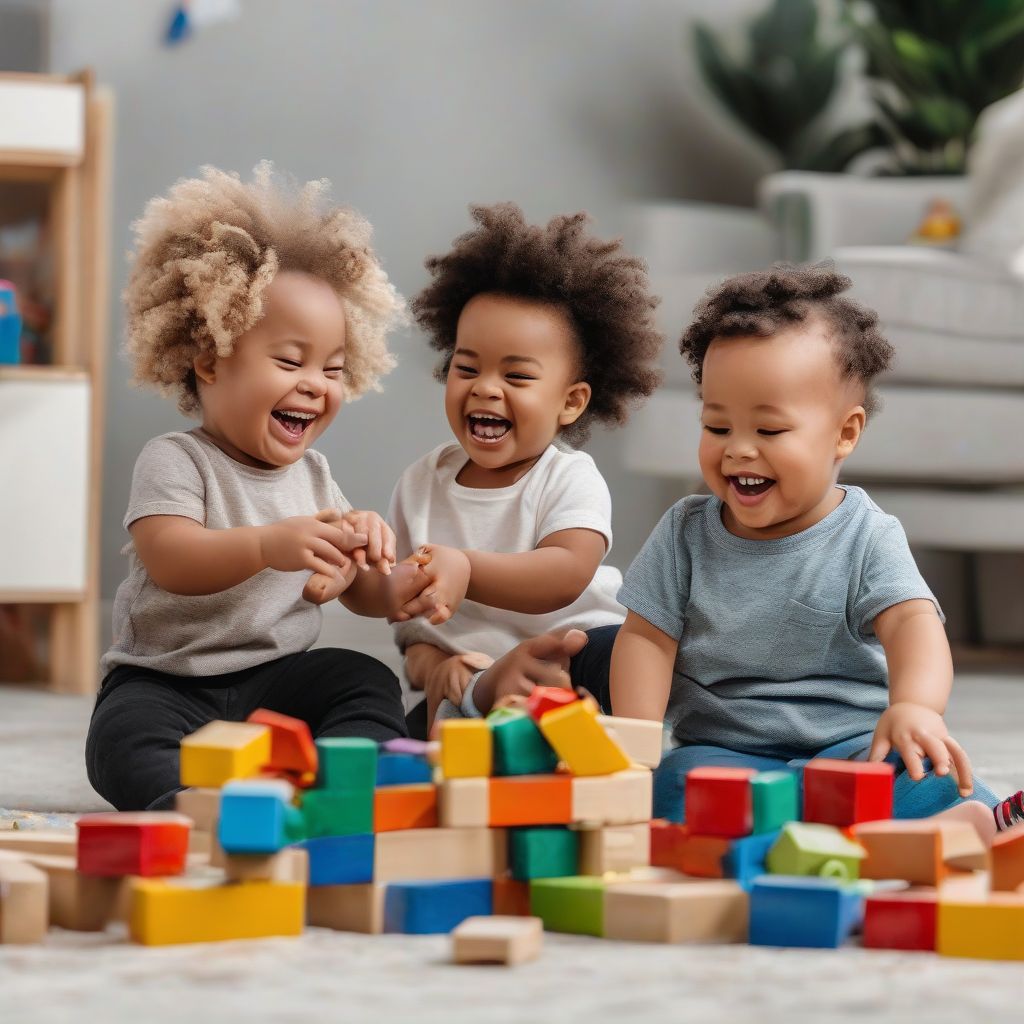“It takes a village to raise a child,” the old adage goes. While this saying speaks to the importance of community, it also subtly hints at a crucial element of child development: socialization. As a nutritionist and meal prepping coach, I’ve witnessed firsthand how healthy habits formed early pave the way for a thriving future. And just like nourishing their bodies, providing toddlers with opportunities for positive social interaction is crucial for their emotional, cognitive, and social growth.
Why Early Socialization Matters: Building a Strong Foundation
Early childhood, particularly the toddler years, represents a period of incredible brain development. During this time, children are like sponges, absorbing information and learning from every interaction. Early socialization provides fertile ground for this development, impacting:
1. Language Development: Think of a toddler engaging in pretend play with their peers, chattering away as they negotiate roles and scenarios. These interactions are like mini language lessons, fostering vocabulary growth, turn-taking in conversations, and understanding social cues.
2. Emotional Intelligence: Learning to navigate the complex world of emotions starts early. Through playdates, group activities, and even simple interactions at the park, toddlers begin to understand their own feelings and those of others. They learn empathy, cooperation, and how to respond appropriately in social situations.
3. Cognitive Skills: Ever notice how toddlers are drawn to puzzles, building blocks, or sorting games? These activities, often enjoyed in social settings, boost cognitive development. Sharing, taking turns, and problem-solving with others strengthen memory, attention span, and critical thinking.
4. Self-Confidence and Independence: As toddlers interact with peers, they develop a sense of self. They discover their likes and dislikes, strengths and weaknesses, and learn to navigate social dynamics. These experiences lay the foundation for self-confidence and independence, essential traits for success later in life.
 Toddlers playing together
Toddlers playing together
Creating Opportunities for Positive Socialization: It’s More Than Just Playdates!
While playdates are fantastic, remember that socialization extends beyond structured activities. Here are some simple yet effective ways to foster your toddler’s social development:
-
The Power of Play: Encourage unstructured playtime at parks, playgrounds, or even in your own backyard. These settings offer valuable opportunities for toddlers to interact with others, learn to share, and navigate social situations organically.
-
Group Activities: Explore parent-child classes like music, art, or gym classes. These structured environments provide opportunities for toddlers to engage with peers while learning new skills and having fun.
-
Everyday Interactions: Don’t underestimate the power of everyday moments! Grocery shopping, library visits, or even a trip to the post office can turn into social learning experiences. Encourage your toddler to observe, interact with others (when appropriate), and practice social skills like saying “please” and “thank you.”
-
Reading Together: Sharing books about friendship, sharing, and emotions can open doors for conversations about social situations. Ask your toddler questions about the characters’ feelings and how they might handle different situations.
Nurturing Social and Emotional Growth: A Continuous Journey
As your toddler blossoms into a young child, remember that fostering their social and emotional intelligence is an ongoing journey. Just like nourishing their bodies with healthy foods, continue to provide them with a loving and supportive environment that encourages social interaction, empathy, and communication. The benefits of these early investments will last a lifetime, contributing to their overall well-being and success.
[amazon bestseller=”early childhood development books”]
A Final Thought:
Remember, every child develops at their own pace. Don’t be discouraged if your toddler seems a little hesitant in social situations at first. With patience, encouragement, and a sprinkle of creativity, you can provide them with the tools they need to thrive socially and emotionally.
